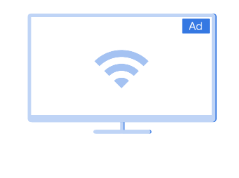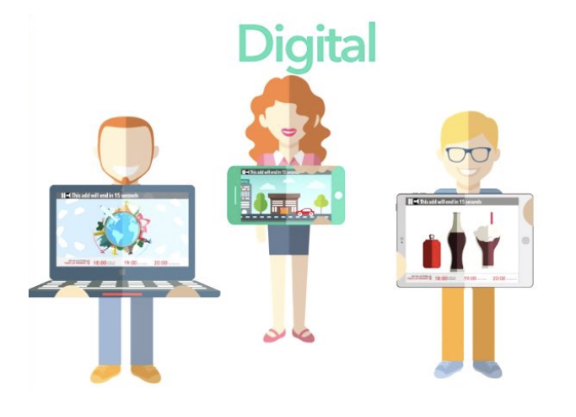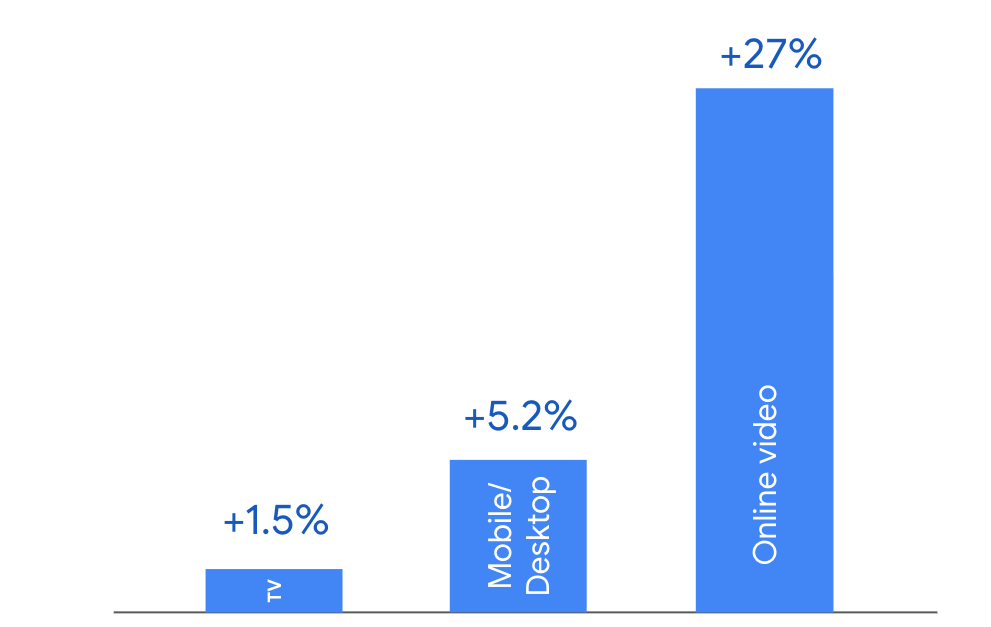Connected TV
41% of Latin America's digital population are Connected TV Watchers, according to a study by Comscore
Netflix · Pluto TV · Youtube · Televisa

What is Connected TV?
A connected TV (CTV) is any television connected to the internet, most commonly used for streaming video. As well as encompassing smart TVs, the term also refers to TVs connected via set-top boxes, TV sticks, and even gaming consoles. So if you're streaming video content from a Roku device, Sony smart TV, or Playstation, you're using a connected TV.

We maximize the advertising to reach audiences
Where Digital and TV converge…A new type of device: Connected TV

Desktop / Mobile

Connected TV

Traditional TV
A TV capable of connecting to the Internet, via an external device or as a Smart TV
What are the main CTV ad formats?
Within the CTV ecosystem, there are six CTV ad formats in addition to standard video ads through which marketers can serve ads to users.
Dynamic overlay
Existing video content is leveraged, given an “overlay” and personalized for the viewer.
Based on elections
Users can choose which ad they want to see. Often, a message like "Which ad experience would you prefer?" is displayed with two options.
Video that can be purchased and acted upon
These ads are interactive and connect users with the products and brands within the ads.
Voice-integrated video ads
Users use their voice by speaking into the remote to follow on-screen prompts, driving user engagement.
Sequential CTV creativity
Instead of a single shot, a story is told in a sequence, using multiple commercials.
Creative extensions and end cards
This ad type is short-form content that runs before or after existing CTV creatives.
Spots on live digital TV signals:
TV experience, with digital segmentation
TV-like user experience, no latency.
Across all screens.
With the possibility of digital segmentation.
2X
Incremento de View Through Rates

8X
Increased Video Completion Rates
What are the benefits of CTV advertising?
With CTV adoption rates skyrocketing, marketers need to make the most of this channel for user acquisition. By focusing on CTV advertising, app marketers gain several advantages.
Achieve a broader reach
CTV is becoming a key focal point in family life, existing across different devices in the living room. According to an eMarketer report, more than half of U.S. YouTube users watch the video streaming platform via a connected TV. Furthermore, the TV is overwhelmingly the preferred device for American consumers to consume OTT content. In the United States, 62% of users say they access OTT services most often on the TV.
Mobile in second place with 9%.
The evolution of TV is developing strongly, giving way to a change in behavior towards digital video consumption.





